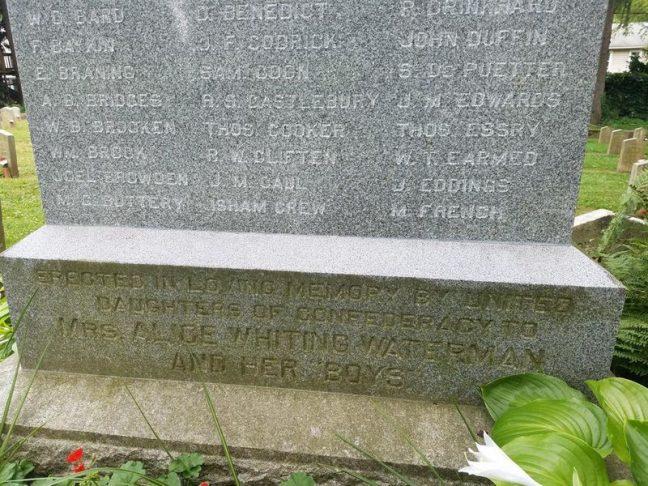In America, the tension – oftentimes violent – between bigoted racists and marginalized groups and activists fighting for racial equality is a defining characteristic of our nation.
This festering, unresolved conflict culminated in one of the most brutal protests in recent memory, which occurred Aug. 12, 2017 in Charlottesville, Virginia. The Unite the Right march was meant to voice opposition to the removal of Confederate monuments, but given how blatantly prejudiced the protesters were in terms of purpose and behavior, a counter-protest quickly developed, resulting in several injuries and the death of Charlottesville resident Heather Heyer.
This is old news.
But now, six months after this fateful protest, America sits in the same situation as it has since August. In fact, the fight has come even closer to home than ever before.
As a consequence of the events in Charlottesville, Madison Mayor Paul Soglin called for the removal of two Confederate monuments in the city-owned Forest Hill Cemetery.
This was Aug. 17, 2017.
Authorities only took down one monument — a small plaque placed in 1981, which referred to the soldiers as “unsung heroes.” The larger monument, which memorializes 140 Confederate soldiers who died as prisoners of war at Camp Randall, still stands.
This month, a public forum and a joint meeting of the Landmarks Commission, Parks Commission and Equal Opportunities Commission have come together to attempt to determine a plan for the remaining monument, but to no avail.
Attendees of the joint meeting presented multiple perspectives on the issue. Madison resident Paul Sherman asserted the monument should stay put, as he believes politicizing the dead is inappropriate.
“I don’t think that we need to have a historical debate within the confines of the cemetery,” Sherman said, according to Wisconsin Public Radio. “Let’s just leave these soldiers’ markers as they are so they’re identified as human beings who are buried there like everybody else in the cemetery.”
A marker for the dead seems appropriate, but one honoring their hateful reasons for war is insensitive.
The monument was put in place in 1906 by the United Daughters of the Confederacy, a southern heritage organization maintaining the beliefs of the Lost Cause interpretation of the Civil War, which claims Confederate soldiers should be honored for their fight for states’ rights or defense against “northern aggression.”
The Lost Cause interpretation is essentially the only way Confederate supporters could maintain a shred of honor — by erasing the inhumane, disgusting treatment of black slaves in America.
To say removing the monument in the Forest Hill Cemetery would erase history is hypocritical, to say the least, given the erectors of the monument have tried to erase the shameful, treasonous past of the Confederacy since the surrender at Appomattox. The fact a monument honoring men who have fought for racial inequality — the repercussions of which still affect black Americans today — lies in Madison, in a state which belonged to the Union, is preposterous.
What is even more preposterous if the fact over half a year has passed without effective, meaningful action from Madison politicians.
Racism is terrible. Honoring racists is even worse. This is a simple issue which should not take more than six months, nor multiple public meetings.
Dismantling this monument does not erase history. The Civil War happened, and removing a monument does not change that, nor does it remove it from the American consciousness or the thoughts of Wisconsinites. What it does show is the denial of racial inequality is no longer acceptable. But if lack of action tells us anything, Madison still has a long way to go.
Abigail Steinberg (asteinberg@badgerherald.com) is a freshman majoring in political science and intending to major in journalism.


